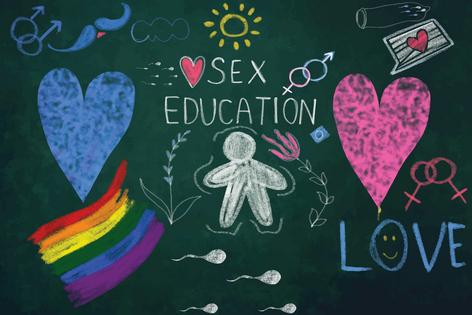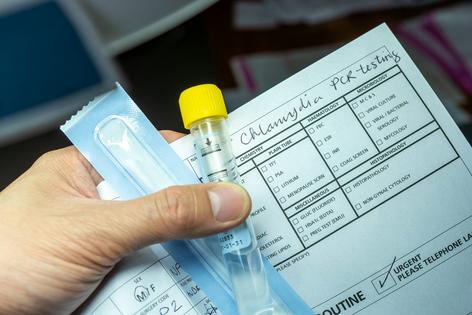Philly has highest STI rates in the country – improving sex ed in schools and access to at-home testing could lower rates
Published in Women
Philadelphia ranks No. 1 among U.S. cities for new sexually transmitted infections – STIs – according to the latest data from the Centers for Disease Control and Prevention.
This is up from fifth place in 2023 and puts Philadelphia ahead of four cities that previously rated higher: Memphis, Tennessee; Jackson, Mississippi; New Orleans and St. Louis.
Among 15- to 24-year-olds in Philadelphia, syphilis cases have shot up 30% since 2019, while cases of gonorrhea [increased 18%]. Chlamydia cases are down 13% from pre-pandemic numbers among this age group, but remain high.
As a public health professor, I research sexual health issues and disparities among Black men who have sex with men and other marginalized groups. I work directly with these communities to research and create health interventions that meet their needs.
I know that two important barriers to young people’s sexual health are high-quality sex education and access to confidential STI testing.
In the U.S., 28 states and Washington D.C. mandate sex education in both elementary and high schools. These programs are typically comprehensive and include education on STIs.
Pennsylvania, however, is not one of those states.
Pennsylvania state law does require schools to provide instruction on the prevention of HIV and AIDS and other “life-threatening and communicable diseases” – though it does not specify STIs.
Each school district in the state can decide which education materials are used to meet the requirements. This information isn’t required to be medically accurate or supported by evidence-based research.
Schools are also not required to discuss consent, sexual orientation and gender identity, or healthy sexual relationships.
The absence of more specific policies and standards led to controversial sex education instruction in the Wallingford-Swarthmore School District, in suburban Philadelphia, in 2018. A 17-year-old student filed a complaint to the school district that the RealEd “relationship education” program they received advised avoiding kissing or cuddling, which could deprive them of hormones and make “bonding with a future spouse difficult.”
Other students reported that the curriculum taught them that having too many sexual partners makes them “less sticky,” like a reused piece of tape, and prevents them from having healthy relationships.
Research suggests that sex education programs that stress abstinence do not decrease rates of STIs and HIV. In some instances, they could lead to an increase in STIs.
In contrast, studies have shown that comprehensive sex education programs in schools have resulted in lower rates of sexual activity, increased use of contraception, and fewer teen pregnancies. These comprehensive programs are medically accurate and age appropriate, and provide broad knowledge for youth on sexual health beyond the topics of HIV, STIs and abstinence.
It’s not clear whether comprehensive sex education programs directly lead to fewer STI rates. However, research does show that increased safe-sex practices is a consistent result from comprehensive sex education.
While the School District of Philadelphia does not report having any specific mandates around sex education, it confirmed via email that all 218 district schools – this does not include their alternative and charter schools – use selected lessons from the 3Rs: Rights, Respect, Responsibility sex ed curriculum as part of their health education for grades K-12.
In addition, their Office of Health, Safety and Physical Education works closely with a grant-based program called Promoting Adolescent Student Health, or PASH,. The program “focuses on reducing youth risk behaviors that lead to unintended pregnancy, STI and HIV” at 17 priority schools in the city.
In the absence of tailored, comprehensive sex education programming for all school-age youth in Philadelphia, here are some evidence-based strategies that can be implemented to reduce the rates of new STI infections.
More relevant curricula: Current sex ed programs could include a broader range of sexual health topics, such as healthy communication and sexual pleasure. Curricula could also be adapted and implemented for younger age groups, and health professionals could collaborate directly with students to determine what they want included in a sex education program. Providing the information online can help make it more accessible and easier to keep updated.
LGBTQ+-inclusive curricula: LGBTQ+ youth are often more vulnerable to STIs due to stigma and lack of access to culturally affirming health care. They are also more likely to experience harmful outcomes from abstinence-based programs and to disengage from comprehensive sex education programs that are not tailored to their needs. Research shows much better outcomes from comprehensive sex education programs that are inclusive of the needs of LGBTQ+ youth and delivered prior to youth engaging in sexual activity.
At-home testing: Testing can slow the spread of STIs, and at-home testing in particular can address many young people’s concerns of confidentiality and access. Research has shown that young people want at-home STI and HIV screening kits, which are affordable and convenient.
Affirming health care: I believe it’s also important that health care providers receive education and training on how to provide culturally affirming sexual health care to young people. This includes providers being able to initiate what they may deem as uncomfortable conversations with patients of different racial or ethnic backgrounds, sexual orientations and gender identities.
Comprehensive treatment: Researchers who conducted a study of over 5,000 Philadelphia teens age 16-17 recommend that health care professionals implement what’s called an “STI Care Continuum” to improve STI screening and treatment for young people. This means youth who have STI symptoms are not only tested and treated, but also provided contact-tracing resources and prevention counseling, and are retested.
When it comes to testing, national guidelines recommend health care providers screen all women ages 25 or younger for chlamydia and gonorrhea annually. A minimum of annual testing of chlamydia, gonorrhea and syphilis is recommended for young men who have sex with men.
If schools, communities, health care professionals and other groups pursued these strategies concurrently and in collaboration, I believe STI rates among Philadelphia youth would decline significantly.
This article is republished from The Conversation, a nonprofit, independent news organization bringing you facts and analysis to help you make sense of our complex world.
Read more:
Massachusetts is updating its sex education guidelines for the first time in 24 years
Youth largely underestimate the risks of contracting STIs through oral sex, a new study finds
Carlos Mahaffey does not work for, consult, own shares in or receive funding from any company or organization that would benefit from this article, and has disclosed no relevant affiliations beyond their academic appointment.




























Comments